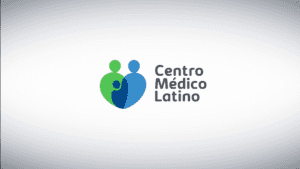Nuestra pediatría y salud adolescente Los servicios brindan una variedad de servicios para pacientes entre recién nacidos y 18 años. Dichos servicios incluyen vacunas, exámenes de bienestar y exámenes físicos deportivos.
¿Qué implica un examen físico deportivo?
Un examen físico deportivo, también llamado examen físico previo a la participación, es un examen físico que se realiza para evaluar la aptitud física de un niño y su capacidad para jugar un deporte determinado de manera segura. Por lo general, se realiza varias semanas antes del comienzo de la temporada para permitir que el paciente se someta al tratamiento o la terapia necesarios para mejorar su aptitud física, si es necesario, y jugar con pocas o ninguna restricción.
Las condiciones que podrían dar lugar a la imposición de restricciones a un niño incluyen las siguientes:
• Diabetes
• Asma
• Trastorno convulsivo
• Trastorno alimentario
• Problemas cardíacos
• Antecedentes familiares de enfermedad grave, especialmente si causó muerte súbita antes de los 50 años.
Comenzaremos por obtener una historia clínica detallada, que incluya antecedentes familiares de enfermedades. Luego realizaremos un examen físico exhaustivo, durante el cual mediremos el peso, la altura, la presión arterial y el pulso del paciente. Verificaremos la audición, la visión, la coordinación y los reflejos del paciente, y comprobaremos la flexibilidad, la movilidad de las articulaciones y la función cardíaca y pulmonar.
El médico hará sus recomendaciones en función de los resultados del examen, el deporte que se practique y el uso de equipos de seguridad. También considerará diversas formas de hacer que la práctica sea más segura.
Las prohibiciones totales son poco frecuentes. La mayoría de los niños con problemas de salud podrán jugar, solo tendrán que seguir ciertas precauciones. Por ejemplo, un niño con asma necesitará usar un inhalador.
¿Cuáles son algunas vacunas recomendadas?
Las vacunas recomendadas incluyen las siguientes:
• Vacuna contra el rotavirus
• Vacuna contra la polio
• Vacuna contra el sarampión, las paperas y la rubéola
• Vacuna contra la gripe
• Vacuna contra el virus del papiloma humano (VPH)
• Vacuna contra la difteria, el tétanos y la tos ferina (DTaP)
• Vacuna contra la varicela
Muchas de las vacunas se administran al menos una vez durante los dos primeros años de vida del niño y luego nuevamente cuando alcanza la edad escolar. No todas las vacunas implican inyecciones.
Sobre las alergias en los niños
Según la Clínica Mayo, el 90 por ciento de las alergias alimentarias en los niños son causadas por solo ocho elementos:
• Leche
• Frutos secos, como anacardos o almendras.
• Pez
• Mariscos
• Trigo
• Soja
• Cacahuetes
• Huevos
En lo que respecta a la salud de los adolescentes, las alergias alimentarias pueden ser un problema complicado, ya que el alérgeno puede estar escondido en lugares inesperados. La soja, por ejemplo, a veces se puede encontrar en alimentos congelados o procesados, mientras que los cacahuetes a veces se encuentran en los cereales, y no solo en los que tienen sabor a mantequilla de cacahuete.
Los síntomas de una alergia pueden variar según la edad del niño. Los niños pequeños tienen más probabilidades de desarrollar síntomas que afecten la piel, como sarpullido, mientras que los niños mayores son más susceptibles a los síntomas respiratorios, como la fiebre del heno.
Visite nuestro Centro Médico Infantil y Adolescente
Para obtener más información sobre nuestros servicios de pediatría y salud para adolescentes, simplemente programe una cita en Centro Médico LatinoTenemos varias oficinas en Charlotte y Monroe. Contáctenos hoy para reservar una consulta inicial para su hijo.







